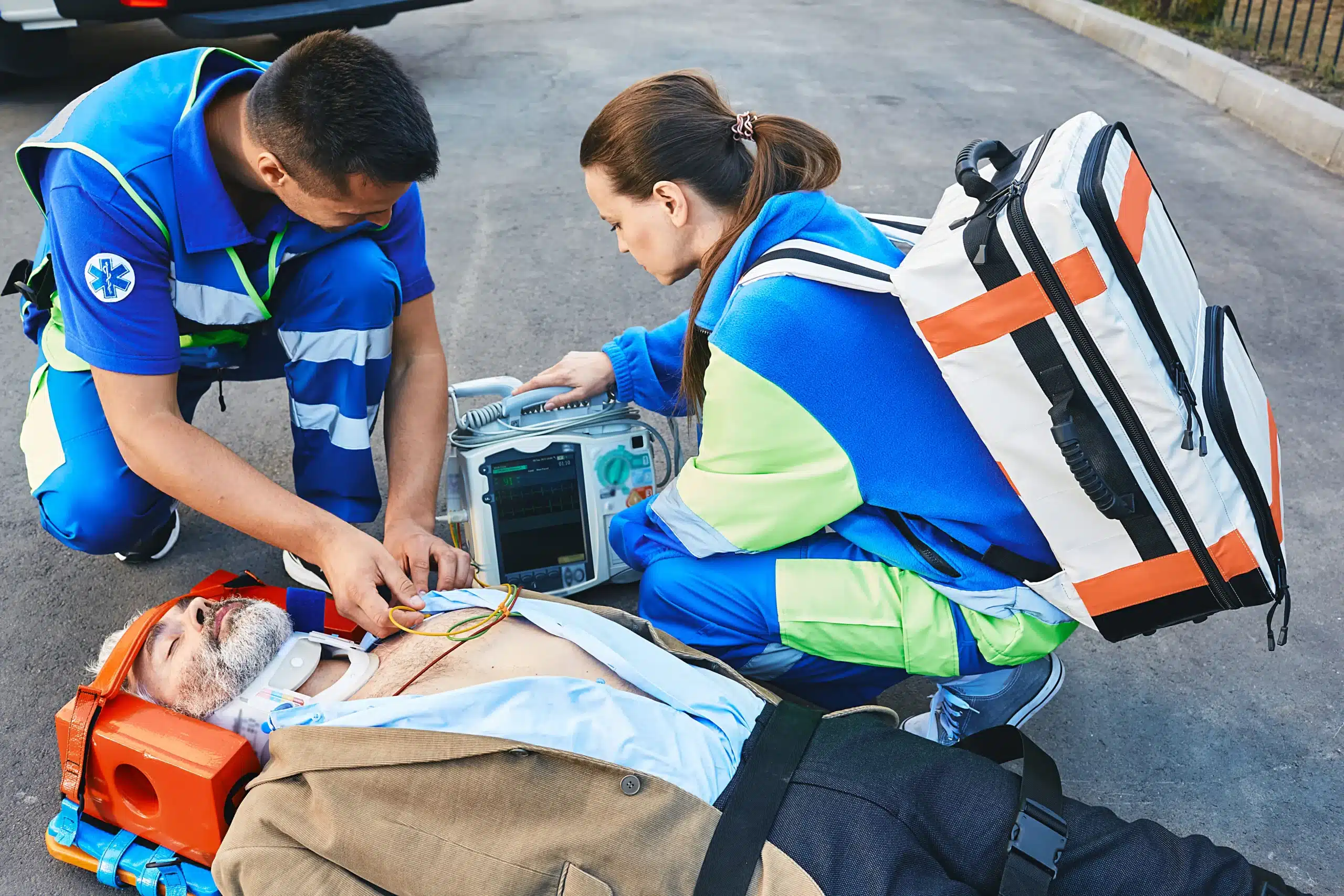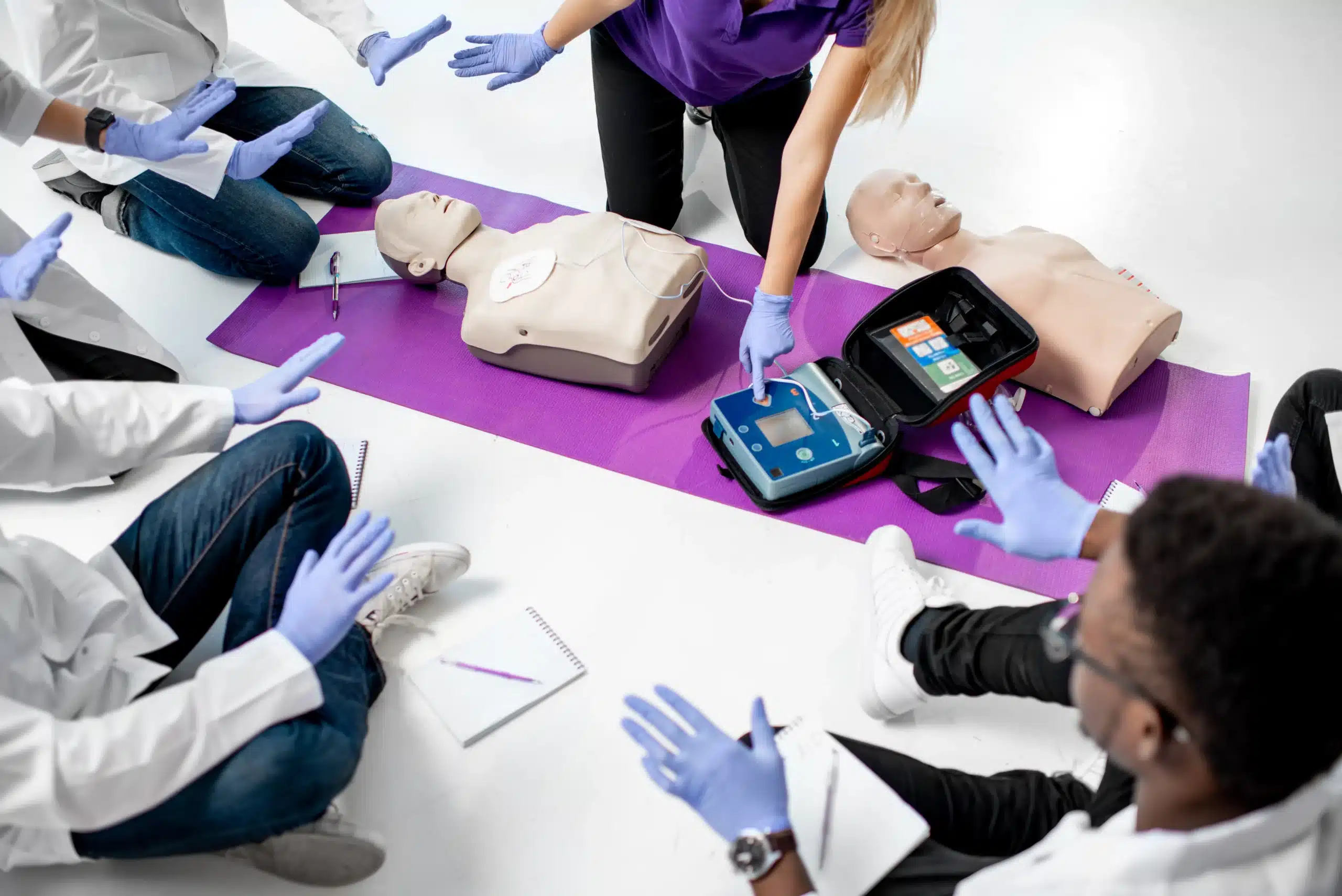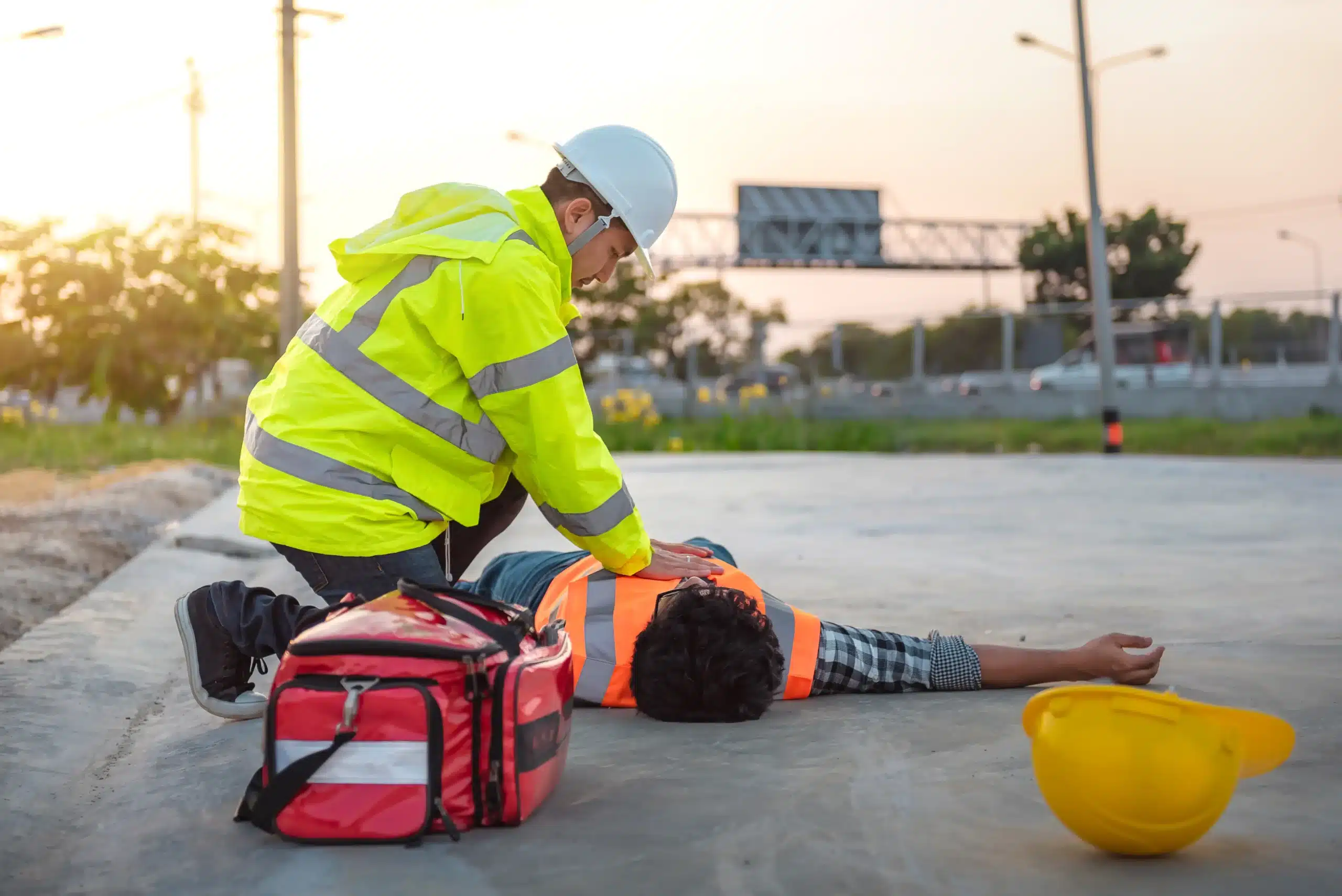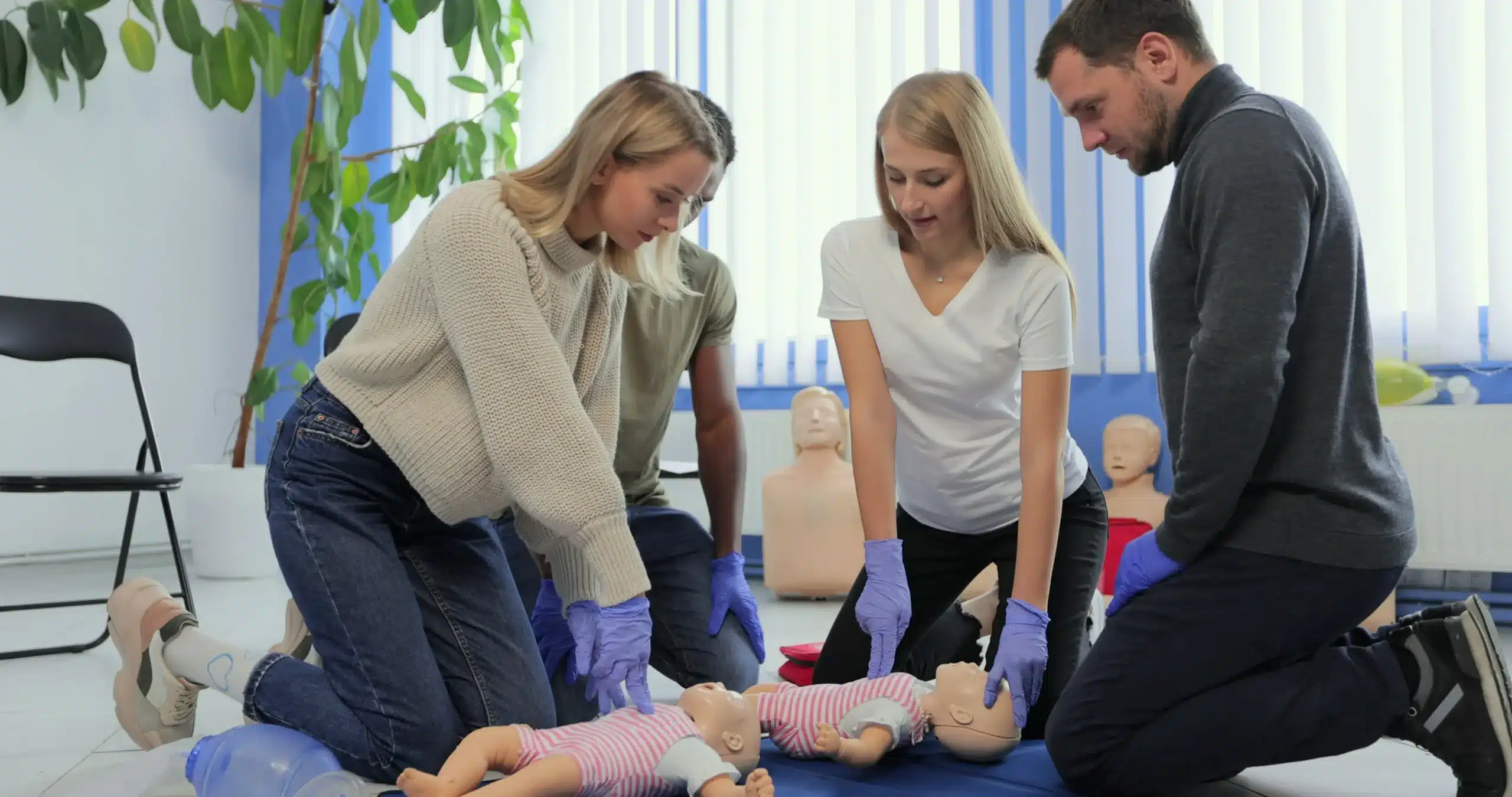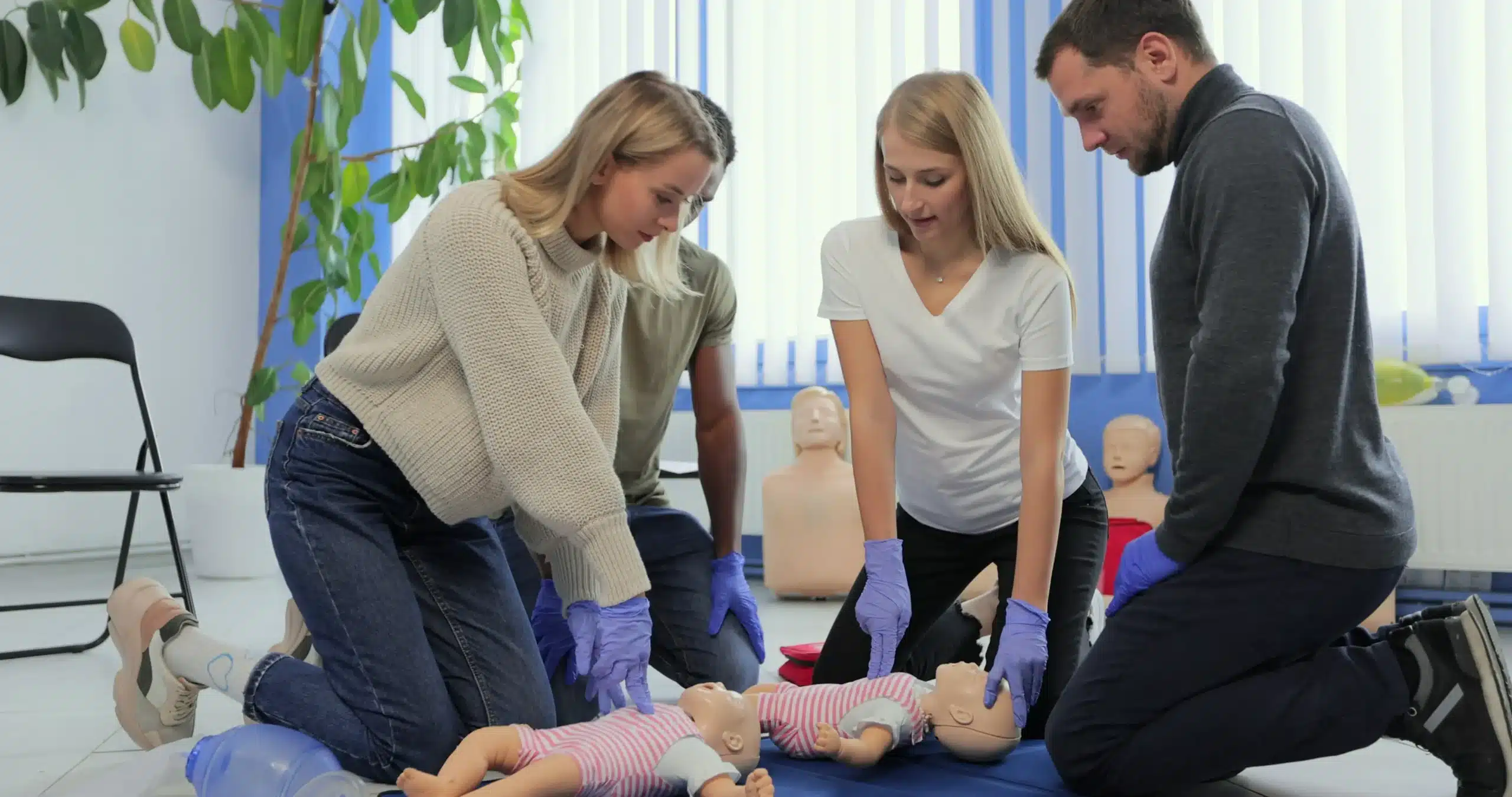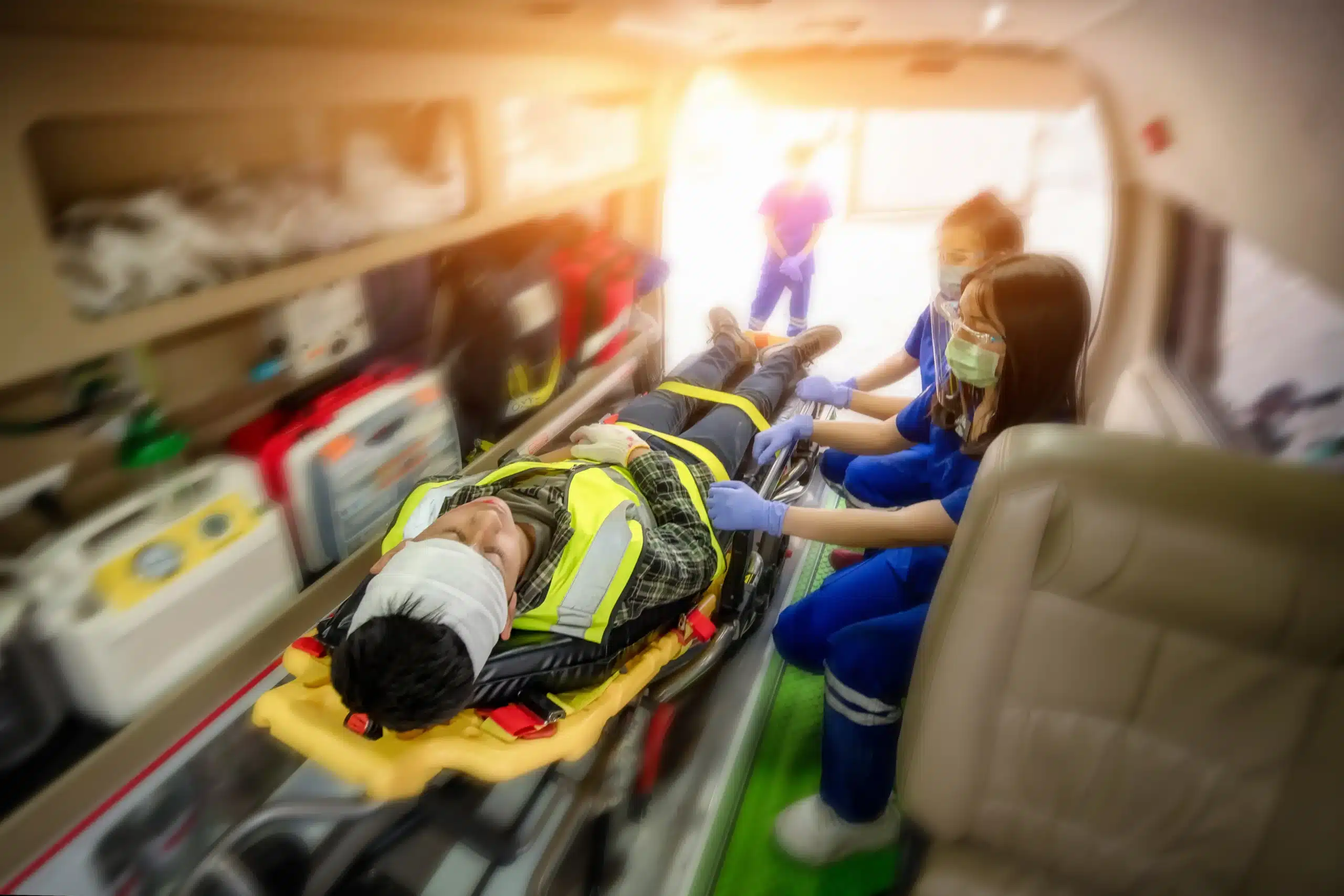Working in healthcare means constantly learning and adapting. BLS renewal in Oakland is a key part of that ongoing growth, ensuring you’re equipped to handle emergencies with confidence. This guide walks you through the process, from understanding the core skills covered in a renewal course to choosing the right provider and format for your learning style. We’ll also address common questions and misconceptions about BLS recertification, so you can approach your renewal with clarity and confidence.
Key Takeaways
- Maintain your life-saving skills with regular BLS renewal: Staying current with your certification ensures you’re prepared to respond effectively in emergencies. Explore various course formats like in-person, blended learning, and virtual skills checks to find the best fit for your schedule.
- Select a trusted BLS training provider: Choose a provider offering American Heart Association-certified courses for nationally recognized, high-quality training. Consider factors like cost, location, and available discounts, like those for group classes.
- Prepare for your course by reviewing key skills: Refresh your knowledge of CPR, AED use, and other essential BLS skills before your renewal course. This preparation will help you confidently apply these techniques during the hands-on portion of your training.
What is BLS Renewal in Oakland?
BLS (Basic Life Support) renewal is essential for healthcare providers, first responders, and other professionals in Oakland who need to maintain their life-saving skills. It’s how you stay up-to-date on the latest emergency response guidelines and best practices, often based on recommendations from the American Heart Association. Think of it as a refresher course to ensure you’re always ready to act quickly and confidently in a crisis.
Recertification usually involves a course covering core skills such as CPR, using an AED, and relieving obstructed airways. These skills are crucial for responding effectively to cardiac arrest and other emergencies. The goal is to equip you with the knowledge and practical skills to provide immediate care. Regular BLS renewal ensures you’re prepared to handle these high-pressure situations. Most certifications are valid for two years, so staying on top of your renewal is key for maintaining your credentials.
Top BLS Renewal Providers in Oakland
Finding the right BLS renewal course can feel overwhelming, but several respected providers in Oakland make the process straightforward. Here are a few options to consider:
Safety Training Seminars
Safety Training Seminars, a local training center, focuses on high-quality American Heart Association (AHA) courses. They offer BLS, ACLS, PALS, CPR, and First-aid certification. Their AHA-certified courses offer standardized, up-to-date training recognized by employers across the country. This makes them a solid choice for healthcare professionals seeking a reliable and convenient renewal option. They also offer group discounts and a low price guarantee.
American Red Cross
The American Red Cross in Oakland offers another trusted option for BLS certification and renewal training. Their classes use real-life scenarios to teach essential skills like CPR, AED use, and how to handle airway obstructions in adults, children, and infants. The Red Cross is a well-known and respected organization, providing a familiar and dependable choice for many.
Project Heartbeat
Project Heartbeat offers a BLS renewal course designed specifically for healthcare providers. Their training covers crucial CPR techniques, AED use, and choking relief, all updated to the latest AHA guidelines. If you’re looking for a course tailored to your professional needs, Project Heartbeat is worth exploring.
Oakland CPR Training Center
CPR Certification Oakland provides AHA-certified CPR and First Aid classes. Their in-person classes cover BLS CPR, AED use, and First Aid, offering a comprehensive approach to training. This can be a good option if you’re looking to refresh your skills in multiple areas.
BLS Renewal Costs & Value
Getting your BLS recertification is an investment in your career and the community. Understanding the costs and what makes a course valuable will help you make the right decision.
Average Prices & Discounts
In Oakland, BLS renewal courses certified by the American Heart Association typically cost around $64.95. This is a standard price among respected training centers in the area. CPR Certification Oakland, for example, offers CPR renewal courses at this price, covering essential skills like recognizing CPR steps, finding a pulse, chest compressions, restoring breathing, and AED use. Many providers, including Safety Training Seminars, also offer discounts for group classes, making it a more affordable option for workplaces or groups of friends renewing together. Check with your chosen provider for any available discounts.
Evaluate Course Quality vs. Cost
While cost is a factor, the quality of the training should be your main focus. AHA certification provides credible training recognized by employers nationwide. AHA-certified courses, from basic CPR to advanced life support (ACLS and PALS), offer standardized, up-to-date training. Safety Training Seminars prioritizes high-quality instruction and competitive prices for their AHA courses, including BLS, ACLS, PALS, CPR, and First Aid. Choosing a reputable provider ensures you receive excellent instruction and a valuable certification. Ask potential providers about their instructors’ experience and the course content to confirm it aligns with the latest AHA guidelines. A slightly higher cost for a high-quality course can be a worthwhile investment.
BLS Renewal: Duration & Formats
Getting your BLS recertification in Oakland doesn’t have to disrupt your busy schedule. With various formats available, you can choose the learning style and timeframe that suits you best. Let’s explore the options: in-person training, blended learning, and virtual skills checks. Each offers a unique approach to renewing your skills and knowledge.
In-Person Training
Traditional in-person BLS renewal courses provide hands-on learning and direct interaction with instructors. These courses offer a structured environment for practicing essential skills like CPR and using an AED. In Oakland, BLS renewal courses certified by the American Heart Association typically cost around $64.95. This price point is standard among respected training centers in the area. If you thrive in a classroom setting and appreciate face-to-face instruction, in-person training might be the right choice. Check with your chosen provider, like Safety Training Seminars, for their course schedule and availability. They often offer discounts for group classes as well.
Blended Learning
For those seeking more flexibility, blended learning combines online coursework with a hands-on skills check. You’ll work through the online portion, including the written test, at your own pace, then attend a shorter in-person session to demonstrate your skills. This format makes it a convenient option for those with demanding schedules. Blended learning offers a good balance between independent study and practical application. If this sounds like a good fit, explore providers like Safety Training Seminars to see if they offer this learning format.
Virtual Skills Check
Similar to blended learning, the virtual skills check option allows you to complete the online portion of the course at your convenience. Renewal courses generally require less online time than initial certification courses. After finishing the online modules and passing the written test, you’ll schedule a virtual skills check with an instructor. This live, online session allows you to demonstrate your BLS skills remotely, eliminating the need to travel to a physical location. This format offers maximum flexibility and is ideal for those who prefer learning from home or have limited access to in-person training centers. Be sure to check with your chosen training center, such as Safety Training Seminars, to see if they offer this virtual option.
Essential BLS Renewal Skills
Your BLS renewal course will cover core life-saving skills and knowledge. It’s a refresher on how to respond to various medical emergencies, giving you the confidence to act quickly and effectively. Here’s a breakdown of the essential skills you’ll review:
Adult, Child, & Infant CPR
CPR is the cornerstone of BLS. You’ll practice chest compressions and rescue breaths on adult, child, and infant manikins, learning the correct techniques for each age group. Your instructor will guide you through the proper hand placement, compression depth, and ventilation rate. These real-life emergency scenarios will prepare you to handle crises involving different age groups. This hands-on practice is crucial for maintaining muscle memory and ensuring you can deliver effective CPR in a real emergency.
AED Use & Choking Relief
Using an automated external defibrillator (AED) can significantly increase the chances of survival during cardiac arrest. Your BLS renewal course will cover how to operate an AED safely and effectively. You’ll also review techniques for relieving choking in both conscious and unconscious victims. These skills are essential for responding to breathing emergencies and providing immediate assistance.
Recognize & Respond to Cardiac Arrest
Early recognition of cardiac arrest is vital. Your BLS recertification will cover how to identify the signs and symptoms, including the absence of a pulse and breathing. You’ll learn how to quickly assess the situation, activate the emergency response system, and begin CPR and AED use. This rapid response can dramatically improve patient outcomes. Understanding the importance of BLS certification for healthcare providers is key to providing timely and effective care.
Renew Your BLS Certification: A Step-by-Step Guide
Recertifying your BLS skills is straightforward. Follow these steps to stay up-to-date.
Check Your Expiration Date
Your BLS card is typically valid for two years. Locate your current card and confirm the expiration date. If your certification is about to expire (within 30 days) or has lapsed, it’s time to enroll in a BLS renewal course. Don’t wait until the last minute; plan to renew a few weeks in advance to avoid any gaps in your certification.
Choose a Provider
Several reputable organizations offer BLS renewal courses in Oakland. Safety Training Seminars offers a range of American Heart Association certification courses, including BLS, at competitive prices. You can also explore options like the American Red Cross or Project Heartbeat to find a course that fits your schedule and budget. When comparing providers, consider factors like location, course format (in-person or blended learning), and any available discounts. In Oakland, BLS renewal courses typically cost around $64.95. CPR Classes Oakland also offers a low price guarantee.
Complete the Course
BLS renewal courses are designed to refresh your essential skills and knowledge. Most providers offer in-person classes that are interactive and provide hands-on practice. These courses often result in same-day certification cards, so you can quickly update your credentials. The training typically covers adult, child, and infant CPR, AED use, and how to recognize and respond to cardiac arrest. Make sure the course you choose meets OSHA requirements.
Get Your New Certification
After successfully completing the renewal course, you’ll receive an updated BLS certification card. Many providers now issue electronic certification cards (eCards), which are convenient and easily accessible. These eCards are valid for two years, just like traditional printed cards. Keep a copy of your eCard readily available, as you may need to present it as proof of certification.
Maintain Your BLS Certification
Keeping your BLS certification current is crucial for any healthcare professional. It ensures you’re prepared to respond effectively in emergencies and provide the best possible care. This section covers everything you need to know about maintaining your BLS skills and credentials.
Renewal Frequency
BLS certification needs to be renewed every two years. This keeps your skills and knowledge sharp and aligned with the latest American Heart Association guidelines. Plan to take a BLS renewal course before your current certification expires. Renewal courses typically cost around $64.95, a standard price among respected training centers in the Oakland area. Check with your employer; some organizations cover renewal costs for their employees.
Continuing Education
Even if your certification isn’t up for renewal yet, consider participating in continuing education activities related to BLS. This could include workshops, online modules, or even peer-to-peer practice sessions. Guidelines evolve with new research and best practices, so refreshing your knowledge ensures you’re providing effective BLS. Staying informed about updates in CPR techniques, AED use, and other essential BLS skills can significantly impact patient outcomes.
Stay Current
Maintaining your BLS certification demonstrates your commitment to providing high-quality care. AHA certification provides credible training recognized by employers nationwide. AHA-certified courses, from basic CPR to advanced life support (ACLS and PALS), offer standardized, up-to-date training. Staying current with your BLS certification benefits your patients and enhances your professional credibility. It shows you prioritize continuous learning and maintaining the highest standards of care. Consider exploring additional certifications like PALS or NRP to further specialize your skills.
Prepare for Your BLS Renewal Course
Getting ready for your BLS renewal course doesn’t have to be stressful. With a little preparation, you can walk into class feeling confident and ready to refresh your lifesaving skills. Here’s how:
Review Course Materials
Guidelines for Basic Life Support are constantly evolving with new research and best practices. Take some time to review your BLS provider manual and any other resources from your previous course. Refreshing your knowledge beforehand ensures you’re current on the latest techniques for providing effective BLS. The Red Cross offers helpful resources like step-by-step guides and BLS handbooks that can be valuable during class and beyond.
Practice Key Skills
Your BLS renewal course will involve hands-on practice of essential skills. Before class, review the core components of BLS, such as performing CPR on adults, children, and infants, using an AED, and relieving obstructed airways. Many courses, including those offered by the Red Cross, incorporate real-life emergency scenarios to help you apply these skills effectively. Reviewing these skills beforehand will help you feel more comfortable during the hands-on portions of the class. AHA-certified courses, like those offered by Safety Training Seminars, offer standardized, up-to-date training that’s widely recognized.
What to Bring
To make the most of your BLS renewal course, make sure you have everything you need on the day of class. Some courses require specific materials, like the BLS for Healthcare Providers Student Manual, which you can usually purchase during registration, as outlined by Project Heartbeat. Wear comfortable clothes suitable for hands-on practice. And don’t worry about waiting for your certification card—many providers, including CPR Certification Oakland, issue same-day certification cards upon successful completion.
Choose the Right BLS Renewal Course
Finding the right BLS renewal course means considering a few things to make sure it fits your needs and learning style. Here’s what to look for:
Evaluate Provider Reputation & Accreditation
A reputable provider is key to a good learning experience. Look for providers accredited by nationally recognized organizations like the American Heart Association (AHA). AHA-certified courses offer standardized, up-to-date training that employers recognize across the country. Safety Training Seminars, for example, offers AHA-certified BLS renewal courses, ensuring your training meets the highest standards. Reading reviews and testimonials can also give you a sense of how satisfied past participants have been.
Consider Schedule Flexibility
Renewing your BLS certification shouldn’t be a scheduling headache. Look for providers with a range of course schedules and formats that work for you. Many providers offer weekend and evening classes, as well as online or blended learning. Flexible options make it easier to fit the training into a busy schedule.
Assess Learning Style
Everyone learns differently. Think about your preferred learning style when choosing a BLS renewal course. Some courses are very hands-on, using simulations and learning stations. Others may be more focused on online modules and independent study. If you like interactive, group settings with direct feedback from an instructor, a course that incorporates hands-on scenarios might be a good fit. If you prefer self-paced learning, explore blended or online options that let you study at your own speed. Choosing a course that matches your learning style can really help you understand and remember the material.
Common BLS Renewal Misconceptions
It’s easy to get confused about BLS renewal, especially with so much information online. Let’s clear up some common misconceptions so you can approach your recertification with confidence.
Certification Validity
One common misconception is that BLS certification lasts forever. Your BLS certification is valid for two years. This timeframe is standard across major organizations like the American Red Cross and the American Heart Association. Knowing your expiration date is crucial. If your certification is close to expiring (within 30 days) or has already lapsed, you’ll need to take a BLS renewal course to stay certified.
Renewal Course Requirements
Another misconception is that renewal courses are less demanding than initial certification courses. Renewal courses cover the same core skills and knowledge as the initial course, ensuring you’re up-to-date on the latest guidelines. These guidelines, often set by organizations like the American Heart Association, cover essential life-saving procedures. Renewal courses simply offer a refresher and reassessment of these vital skills. They are designed for various healthcare professionals, and most providers are required to complete this training.
Online vs. In-Person Certification
Finally, there’s often confusion about online versus in-person certification. Both options offer the same level of certification, as long as they include a hands-on skills check component. Many providers, including the American Heart Association, offer blended learning, which combines online coursework with a virtual or in-person skills check. This blended learning approach offers flexibility while maintaining the important practical element of BLS training. Whether you choose an online or in-person course, make sure it includes a hands-on skills assessment to meet the certification requirements.
Related Articles
- BLS Renewal in Berkeley: Your Go-To Guide – Oakland CPR Classes
- BLS Renewal in Alameda: Your Easy Guide – Oakland CPR Classes
- BLS Certification Alameda: The Ultimate Guide – Oakland CPR Classes
- BLS Certification in Oakland for Healthcare Providers – Oakland CPR Classes
- BLS Courses in Oakland: Your Guide to Certification – Oakland CPR Classes
Frequently Asked Questions
How often do I need to renew my BLS certification? BLS certification is valid for two years. To maintain your credentials and stay up-to-date on the latest life-saving techniques, you’ll need to renew your certification every two years. Mark your calendar and plan to take a renewal course before your current certification expires.
What’s the difference between BLS renewal and getting certified for the first time? A BLS renewal course covers the same core content as the initial certification course, but it’s designed as a refresher. You’ll review and practice essential skills like CPR, AED use, and choking relief, ensuring you’re up-to-date with the latest guidelines. Renewal courses are often shorter than initial certification courses, focusing on reinforcing existing knowledge and skills.
Are online BLS renewal courses accepted? Yes, many online BLS renewal courses are accepted, but they must include a hands-on skills check component, either virtually or in-person. This practical assessment is essential to demonstrate your competency in performing life-saving techniques. Check with your chosen provider to ensure their online course meets all certification requirements.
How much does BLS renewal cost in Oakland? In Oakland, BLS renewal courses typically cost around $64.95. This is a standard price among many reputable training centers. Some providers offer discounts for group classes, so if you’re renewing with colleagues or friends, it’s worth inquiring about potential cost savings. Remember, while cost is a factor, prioritize the quality of the training and the provider’s reputation.
What if my BLS certification has already expired? If your BLS certification has expired, you’ll need to take a BLS renewal course to reinstate your credentials. Don’t delay, as having a current certification is essential for many healthcare and other related professions. Many providers offer frequent courses, making it easy to find a class that fits your schedule and quickly get recertified.


